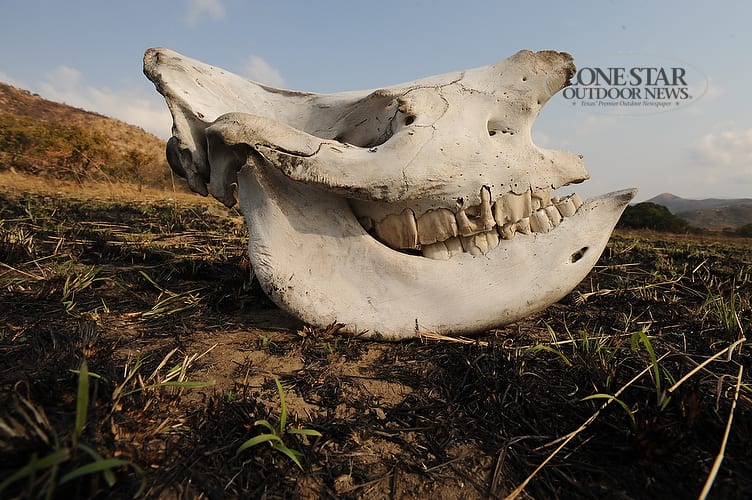Law enforcement officers from 28 countries just announced the completion of a ground-breaking, global operation to combat wildlife poaching and trafficking, code named “Operation Cobra II.”
The month-long operation and capacity building activity promoted cross-border law enforcement cooperation and is drawing praise from the conservation community for its impressive results, including more than 400 arrests of wildlife criminals and 350 major wildlife seizures across Africa and Asia.
Operation Cobra II also resulted in the seizure of 36 rhino horns, more than three metric tons of elephant ivory, over 10,000 turtles, more than 1,000 skins of protected species, more than 10,000 European eels, and over 200 metric tons of endangered rosewood. Among the many arrests were several wildlife kingpins.
Police, Customs, and wildlife officials from China, Africa, Southeast and South Asia, as well as the United States joined together with international enforcement agencies to stage the operation out of two coordination centers in Nairobi and Bangkok, with links to field operatives across Africa and Asia. The “International Coordination Team” for Cobra II exchanged intelligence on a daily basis, targeting poachers and traffickers of endangered elephants, rhinos, tigers, pangolins, turtles and other species sought by wildlife criminals to feed the black market in wildlife and wildlife products.
The illegal wildlife trade has become highly profitable — some estimates put the value as high as US$19 billion annually. Trade is increasingly controlled by organized crime syndicates with sophisticated international networks that have access to large amounts of cash, the latest technology and corrupt transportation channels. Chinese and African law enforcement officials conducted the first successful joint sting operation that resulted in the arrest of an ivory trafficking kingpin who was funneling large amounts of poached elephant tusks between Africa and China.
Investigators joined together with the World Customs Organization, UN Convention on International Trade in Endangered Species of Wild Fauna and Flora (CITES), Interpol, ASEAN-Wildlife Enforcement Network (ASEAN-WEN), and the Lusaka Agreement Task Force (LATF) to run the operation. New intelligence on poaching and trafficking syndicates was gathered, allowing governments to continue investigations with increasingly clearer targets.
Operation Cobra II was financially supported principally by the U.S. State Department Bureau of Narcotics and International Law Enforcement Affairs, the U.S. Fish and Wildlife Service’s Rhinoceros and Tiger Conservation Fund and African Elephant Conservation Fund and the China Wildlife Conservation Association. Joint training exercises that led to Cobra were conducted by the Special Investigation Group on wildlife trafficking, which has received technical and financial support from the U.S. Agency for International Development (USAID) sponsored Asia’s Regional Response to Endangered Species Trafficking Program, implemented by the counter-trafficking organization Freeland. The International Fund for Animal Welfare (IFAW), another program partner, provided additional financial support, as did theCanadian Embassy in Kenya and participating countries. Freeland mobilized and provided financial, logistical and training support as well as tip-off information on wildlife trafficking syndicates.
“Wildlife crooks are networking efficiently with horrific results on the poaching battlefield, so conservationists and law enforcement officers must do the same to stop them,” said Steve Galster, Director of Freeland.
“This operation was a great example of governments, international organizations and non-government organizations collaborating to break up wildlife trafficking networks. We need to do this more.”
“Operation Cobra II is a great example of countries working together to address the most serious and pressing wildlife issue of our time. Wildlife trafficking is quickly threatening to wipe out some of the most charismatic and treasured animals on the planet, and it is only through international collaboration such as this that we can hope to save them in time,” said U.S. Fish and Wildlife Service Director Dan Ashe. “The U.S. Fish and Wildlife Service looks forward to working further with the partners of Operation Cobra II to help stop the illegal trade in wildlife.”
Photo by Lili Sams, LSON.



1 comment
[…] Operation Cobra II in Africa and Asia had some amazing results in combating wildlife poaching and trafficking “impressive results, including more than 400 arrests of wildlife criminals and 350 major wildlife seizures across Africa and Asia. Operation Cobra II also resulted in the seizure of 36 rhino horns, more than three metric tons of elephant ivory, over 10,000 turtles, more than 1,000 skins of protected species, more than 10,000 European eels, and over 200 metric tons of endangered rosewood. Among the many arrests were several wildlife kingpins.” AWESOME!!! Time to put a stop to it… […]
Comments are closed.